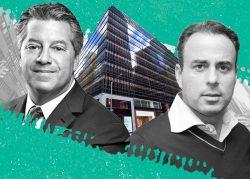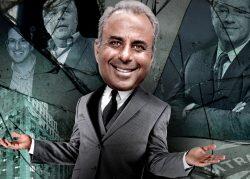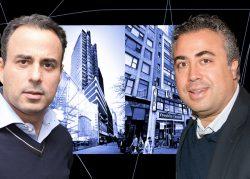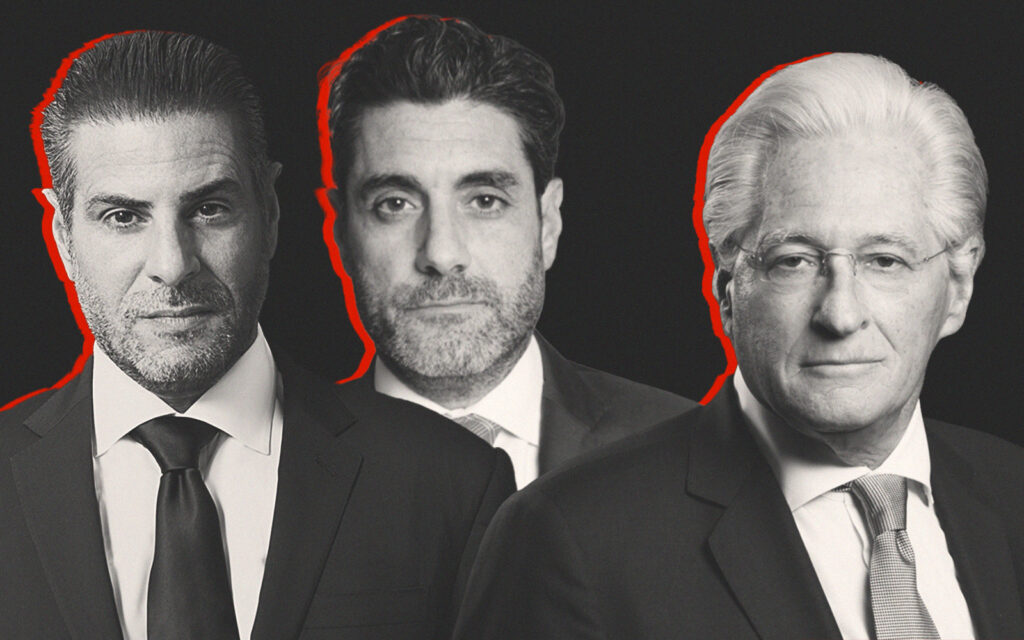Ben Ashkenazy is a billionaire real estate developer, a legendary dealmaker and a noted patron of the arts.
Evidently, he’s also a ruthless texter.
In a scathing text message filed in court documents as part of a legal battle between Ashkenazy and fellow retail mogul Raymond Gindi, Ashkenazy called Gindi a “shmuck” who he “can’t wait to punish.”
“No wonder you lost and bankrupted your $2 bil business that your dad left you with no debt,” Ashkenazy wrote. “You will lose much more with your destruction and business harassment. More than you know.”
The text concluded, “I’m going to crush you for damages you have caused me.”
The fiery missive was sent last month as Gindi and Ashkenazy tangled over a refinancing and capital calls on the Cross County Mall in Yonkers, New York, which Ashkenazy co-owns with members of the Gindi family.
According to a letter from Ashkenazy’s attorney, the property’s loan was in default and the owners were able to secure a $55 million refinancing from CitiBank to avoid foreclosure. But the new loan had a capital shortfall of $4.1 million, plus $2.2 million in closing costs.
Ashkenazy’s attorney claims the Gindis refused to help cover this shortfall. The attorney also alleges the Gindis are liable for back rent owed by Century 21, the department store chain that the Gindi family owns, which was one of the mall’s anchor tenants. In court filings, the Gindis’ attorneys have claimed that Ashkenazy in fact owes the Gindis money on the property and provided them misleading information about the mall’s finances, making the capital calls invalid.
Ashkenazy first sued the Gindis — Raymond and his cousins Eddie and Isaac — in 2020, claiming they were blowing off capital calls on retail properties they owned together and were trying to extract a premium buyout. Ashkenazy also accused the Gindis of spreading rumors about him, telling prominent members of their community, including the Dweck, Adjmi, Chehebar and Cayre families, that he had stolen from them.
Read more



The lawsuit was a bombshell in New York’s tight-knit Syrian Jewish community, where disputes are often settled out of court.
Recent court filings show that real estate players — from both in and out of the community — reached out to Ashkenazy and Gindi to settle the conflict.
Kushner Companies founder Charles Kushner, who has no involvement in the dispute, pleaded with the pair to “stop the fighting” and offered to help them come to an agreement in a late 2020 email.
“I know from personal experience that these fights have a life of their own and rarely end with a good conclusion,” wrote Kushner, who is famously estranged from his brother, Murray, and went to prison in 2005 in part because of a dispute with his sister, Esther Schulder.
“It pains me personally as both of you are friends, neighbors and leaders in the Jewish community,” Kushner wrote.

The Gindis recently hired attorneys Terrence and Darren Oved of Oved & Oved, who said Ashkenazy’s text exemplified a “disturbing campaign of harassment.”
“This conduct alone raises significant concerns both regarding the prospect of our clients’ entrusting further millions of dollars to Ashkenazy’s discretion and control as well as his overall fitness to continue managing their complex assets and finances,” the attorneys wrote in a filing.
“We look forward to vindicating the Gindis’ rights in court,” the Oveds said in a statement.
A representative for Ashkenazy’s firm, Ashkenazy Acquisition Corporation, said the problems with Century 21 caused the mall to need an influx of capital and that the Gindis’ refusal to make the capital calls put the property at risk of foreclosure.
“This is just one example of many where the Gindis’ own actions and baseless refusals to meet their contractual capital obligations has wreaked havoc and inflicted significant financial harm to Mr. Ashkenazy and the properties, for which Mr. Ashkenazy will hold the Gindis accountable,” the company said in a statement.
The bad blood started during the pandemic when Ashkenazy initiated capital calls on seven properties he co-owned with the Gindis to cover cash flow shortfalls and avoid loan defaults and foreclosures.
The Gindis filed counterclaims alleging Ashkenazy owed them tens of millions in damages and said he once texted Raymond with a threat to “go nuclear if I need to because you destroyed my business.”
The Gindis claim that Ashkenazy is the one who failed to make payments on the Cross County Mall and that he denied them access to books and records. The Gindis also allege Ashkenazy provided them with intentionally misleading financial information.
